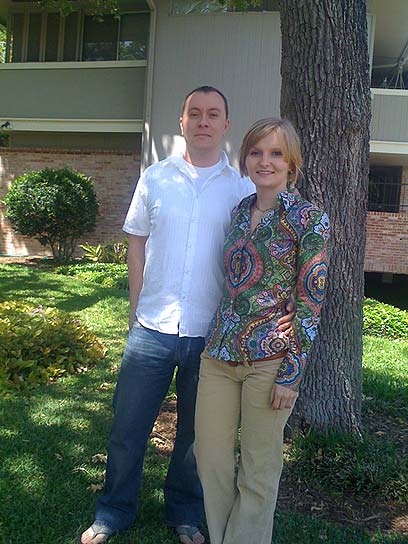
Every immigrant has their own unique story about what led them to the Holy Land. This is the story of Zev and Neta. They are two American Jews from the former Soviet Union, who are facing challenges immigrating to Israel.

Zev and Neta. A dream come true
In the United States, Zev works as an attorney at a successful law firm specializing in international transactions, business immigration, criminal law, and family law. He also serves as a consultant for issues dealing with the US Foreign Corrupt Practices Act and issues in violation of the US Securities and Exchange Commission. Neta holds a bachelors degree in accounting and has been accepted into an MBA program in Israel this fall.
Tremendous financial insecurity
The couple's main issue is trying to pay off law school loans while going through the immigration process. Zev must pays more than $700 a month in student loans which will be unaffordable without job security once he arrives in Israel.
It will take at least two years to become proficient in Hebrew to re-bar as an Israeli attorney. It takes many new olim up to six months to find a job and with mounting student loans, the couple enters Israel with tremendous financial insecurity.
The financial dilemma of immigrating to a new country creates a catch-22 for many potential olim. On one hand, moving to Israel is a dream fulfilled for many Jews throughout the Diaspora, but that decision can result in dire financial repercussions.
Zev says, "It is true that life can be more comfortable in the US, but you do not go to Israel to be rich. You go to Israel to be and live in Israel. Even Israelis living in the US tend to be more cynical when you tell them you are considering aliyah."
Help in fighting uncertainty
The Immigration Absorption Ministry and organizations like Nefesh B'Nefesh, provide a lot of assistance benefits to new olim. Families are provided with a free one-way ticket from their country of origin to Israel. During the first 18 months of residence, a married couple with no children is eligible to receive NIS 30,100. To assist with language immersion, a five-month-long, intensive Ulpan program is provided.
New olim also receive the benefit of generous rent subsidies for their first five years in the country, as well as free health coverage for the first year.
"We feel that the State of Israel does quite enough for its new immigrants with absorption centers, free ulpanim, cash allowances," said Zev. "The State of Israel does not owe us anything. The one thing that could be improved is not necessarily the State's processing of olim, but perhaps a phase in the planning of aliyah which includes state sponsored employment fairs.
"If an oleh knows that he will have employment after aliyah and can support his/her family, then the 'uncertainty' feeling is gone," he added.
Falling between the cracks
Zev and Neta's situation is not unique. Many Jewish professionals are encountering the same dilemma in the immigration process.
The Jewish Agency has organized career fairs in central cities throughout the United States, Canada, and Europe to address this issue. But for American Jews living outside New York, these types of programs are difficult to attend. For many potential olim it can take decades to pay off student loans and by the time they are in their thirties, many have families and are less likely to make the move.
The fear of unemployment and financial uncertainty is deterring numerous Jews from making aliyah. Despite efforts by the Jewish Agency to assist new olim, many fall between the cracks.















